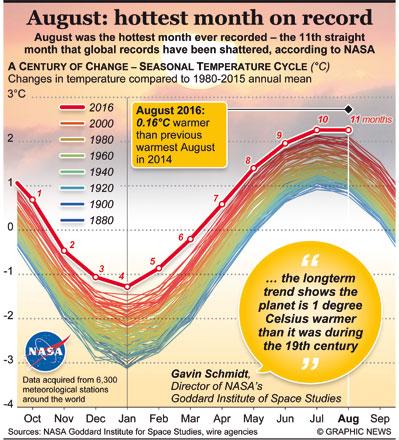You are here
Jordan signs climate change cooperation agreement with Bangladesh
By Hana Namrouqa - Apr 03,2017 - Last updated at Apr 03,2017
AMMAN — Jordan and Bangladesh on Monday signed a memorandum of understanding on climate change cooperation.
Under the agreement both countries will meet twice a year to benefit from each others’ experience in fighting global warming and in alleviating its impact on natural resources and the wellbeing of population, senior officials from both countries said on Monday.
Although both countries are minor contributors to greenhouse gas emissions, Jordan and Bangladesh suffer many consequences of climate change on their socio-economies and natural resources, the officials explained.
It is therefore imperative for both countries to focus on adaptation measures to alleviate the effect of the global phenomenon on their societies, officials added.
During the signing ceremony, Minister of Environment Yaseen Khayyat said cooperation on climate change was "vital", underscoring that sharing data enhanced methods of coping with the phenomenon.
Khayyat also highlighted that twinning between cities and countries is an ideal way to tackle the impact of climate change.
Khandaker Mosharraf Hossain, Bangladeshi minister of local government, rural development and cooperatives said his country contributes as low as 0.6 per cent to the global emissions of greenhouse gases, but that it suffers dramatically from global warming.
“Climate change is affecting us very badly… river beds are rising due to the drifting sediments, making rivers unable to carry as much water as before, and, thus, they flood,” he said.
Acknowledging that climate change is affecting Jordan and Bangladesh in different ways, the Bangladeshi minister noted that their common woes should push them to cooperate on climate change adaptation plans.
Every four years, Jordan publishes a national communication report on climate change to provide a scientifically sound description of the projected impact of climate change on the country over the years, as well as a comprehensive mitigation assessment.
The latest report warned that Jordan would witness a steady increase in temperatures, an increase in dry spells, and a drop in precipitation in the coming decades, as the impact of global warming becomes more apparent.
During the High Level Segment meeting at the 2015 United Nations Climate Change Conference, Jordan pledged to cut its greenhouse gas emissions by 14 per cent by 2030, and to double the proportion of renewable energy in its total energy mix by 2020.
The 2013-2020 Jordan Climate Change Policy suggested that the country would witness a 1 to 4°C increase in temperatures and a 15 to 60 per cent decrease in precipitation. Both changes could in turn have serious impacts on the Kingdom's natural ecosystems, river basins, watersheds and biodiversity.
Meanwhile, a recent study issued by the Water Ministry indicated that climate change over the past two decades had caused a drastic drop in rainfall, prolonging dry spells in Jordan.
The study, carried out by Stanford University, in cooperation with the ministry, indicated that the country had received a below average amount of rainfall in 13 out of 19 years, between 1995 and 2013, with longer periods of drought witnessed during the same period.
Related Articles
BONN — A Jordanian delegation headed by Minister of Environment Yaseen Khayyat is currently participating in the global negotiations on envi
AMMAN — Jordan, alongside 195 countries, is taking part in the Conference of the Parties (COP22) on climate change being held in Marrakesh,
AMMAN — Climate change jeopardises the survival of small- and medium-sized enterprises (SMEs), which make up 98 per cent of Jordan’s busines













